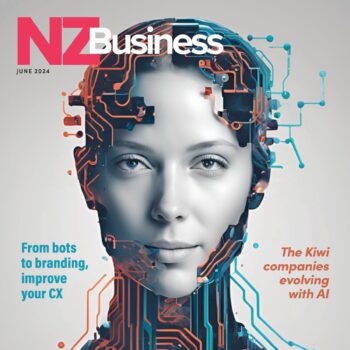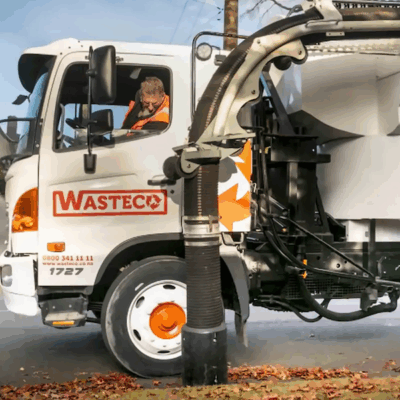Unleashing human potential: AI’s impact on small business
AI is undoubtedly a formidable tool, enabling humans to amplify their capabilities and achieve more in less time. Regular speaker on the topic, Tim Warren, sheds light on how AI is reshaping the landscape for entrepreneurs and paving the way for scalable success.
In today’s rapidly evolving business landscape, small enterprises are increasingly turning to artificial intelligence (AI) to streamline operations, enhance customer experiences, and drive growth. To delve deeper into this transformative trend, NZBusiness sat down with Tim Warren, Co-Founder of Ambit, a leading AI solutions provider for businesses. Tim shared his insights on the role of AI in empowering small enterprises and the opportunities it presents for innovation and competitiveness.
Q: In your experience, would it be fair to say AI is helping humans scale their awesomeness?
Tim Warren: Totally. Motivated people are getting a huge amount out of this.
Q: When it comes to small business, how are owners translating this scaled awesomeness into their businesses?
TW: Small companies are realising they can fulfil many of their marketing and structural needs using free tools. A lot of design and writing can be achieved in minutes where small companies used to spend thousands just to get started.
Q: Do you think small businesses are better placed to experiment with AI than larger organisations?
TW: Not really structurally, but because they are generally more liberal, they can actually get started earlier. However, it’s an open playing field.
Q: I’m a small business owner, have been to your talks and workshops, and am ready to translate my AI tinkering into a practical solution for my business. Where do I start with its implementation?
TW: AI is interesting because it has brought incredible power to people without too much planning. So, as a result, the first thing most people need to do is put some process in place. Once people know what they are doing and what they want to achieve, they can define what they need AI for and what they don’t.
Q: What are some of the most common AI misconceptions out there, especially when it comes to AI within a small business setting?
TW: One of the problems is there are lots of people pretending to be experts in AI when really they just started playing with it last week. I think it’s on business owners and leaders to skill themselves up a lot so they can tell the real from the fake. Also, scale down expectations because if you go in expecting magic, you might be disappointed.

Q: What challenges do organisations face when implementing AI processes?
TW: AI is not really a standalone thing; it can’t really do anything on its own. What you need around it is good people, good processes, and lots of other technology to support it. For instance, artificial intelligence might be really good at creating a project plan for you, but you need some guidelines around that and people who know what they’re doing, who know what a good project plan looks like.
Q: Is there any downside to SMEs adopting AI technologies within their organisations?
TW: No, I don’t think so. However, AI is just a tool, and whether you can do good things or bad things, if people push something into production and start using AI before they are ready, they will probably make a bit of a fool of themselves. So do lots of experimentation, have some fun, use it for things that don’t matter too much, like internal processes and that kind of thing, before setting it loose onto the world.
Q: How long do you think this period of AI disruption is going to last, before it’s just another ‘tool’ humans use to get a job done?
TW: In some ways, it will follow the hype cycle – excitement and then disappointment. But in other ways, it’s so transformational that I don’t think artificial intelligence will ever go away. In a sense, we will just learn to expect it in our everyday lives. Think of productivity; when that came out, it was awesome and it never got less awesome, we just got used to it. So the disruption will continue, we’ll learn that disruption is constant.
Q: What’s your favourite thing about AI currently?
TW: My favourite thing is that people are so curious about it, and the best thing is when people want to talk to me and learn about it. I don’t claim to be an expert, but I have worked out how to inspire people to use it for good.







